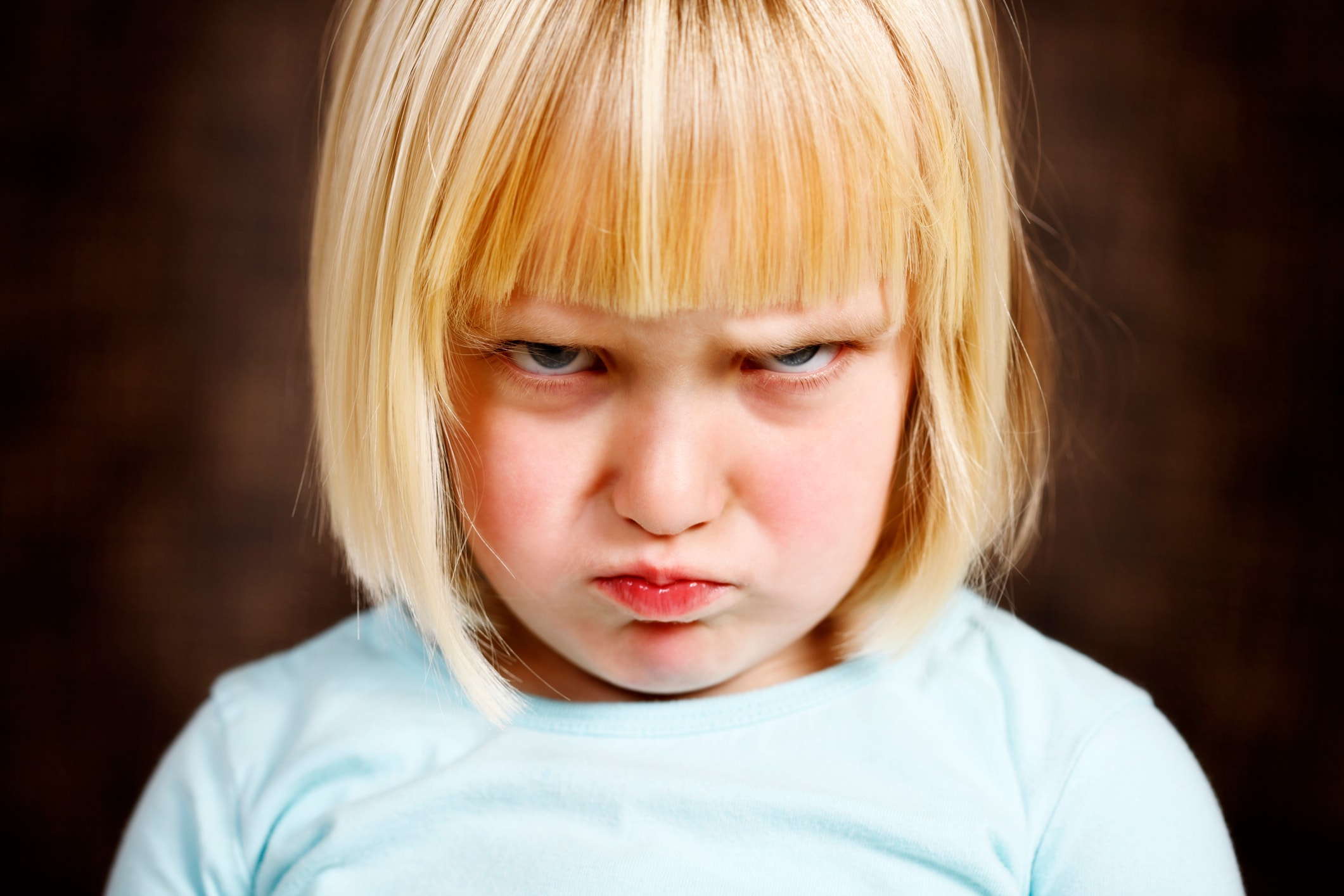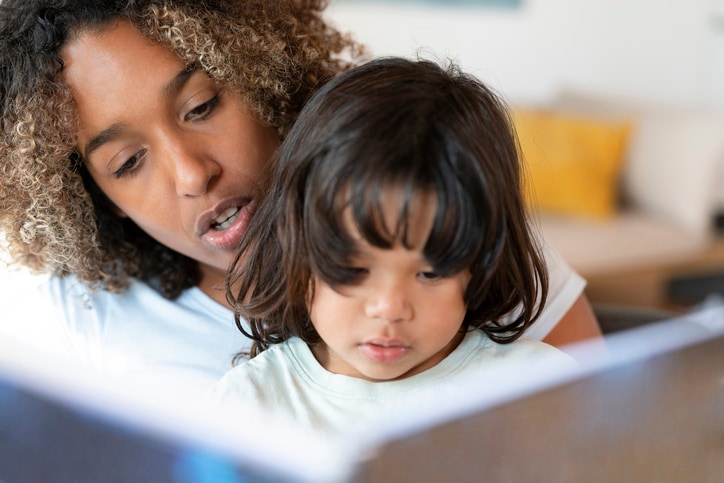In spring 2021, Jennifer knew her family needed help. Like many folks during that time, the COVID-19 pandemic put a strain on their day-to-day lives — as well as their connections with one another. “We were fighting with each other frequently,” recalls the mom of two from Santa Clarita, California (whose real name isn’t used here to protect the privacy of her children). “There was a lot of yelling in the house. It felt as though our relationships had become oppositional.”
Jennifer and her husband made the decision to see a family therapist, which she notes helped them and their children communicate more clearly and empathetically with one another. A byproduct of family therapy that Jennifer didn’t see coming: her 9-year-old daughter’s desire to see a therapist solo.
“She was struggling to build friendships at school after being home for two years,” remembers Jennifer, adding that her daughter, Abigail (whose real name is not used here) would be the frequent target of bullying — which would often send her home from school in tears. “Abigail became very depressed and expressed that she would never have any friends.”
Jennifer made the decision to find a therapist for her daughter. “I supported her decision to go to therapy because I recognized that she needed somebody to talk to about her feelings,” she says. “She needed help developing social skills.”
“Even before the pandemic, around one in five children had a mental health diagnosis, but only 20% received treatment.”
— Carla Allan, division chief of psychology at Phoenix Children’s
Why now’s the time to consider if therapy would benefit your child
While a 9-year-old entering therapy might seem somewhat novel (or a direct result of the pandemic), according to Carla Allan, division chief of psychology at Phoenix Children’s, what’s mostly new is the awareness that mental health has recently received — not necessarily the presence of mental health struggles in kids.
“Even before the pandemic, around one in five children had a mental health diagnosis, but only 20% received treatment,” explains Allan. That said, she notes pandemic played a major role in jostling routines, increasing isolation and spurring grief from the (potential) loss of loved ones. “When children face these types of stressors, it impacts physical and mental health.”
A study published in JAMA Pediatrics found that the number of children diagnosed with anxiety grew by 29% between 2016 and 2020 and those with depression by 27%. The study makes a direct correlation between mental health struggles and the COVID-19 pandemic, but it’s important to note other cultural shifts could also play a role — like the boom in smartphone and social media use.
Allan adds that it’s also important to highlight two conflicting factors in the equation: the lack of qualified mental health professionals and the continued stigma surrounding mental health, especially for children who might be seen as more “naturally resilient” than adults. That’s a dangerous mentality.
“At a societal level, there has been more openness to talk about mental health and seek help,” explains Allan. “But we still have a long way to go in terms of eliminating the stigma and increasing access to mental health care. We need to meet the moment and become more integrated into places where kids naturally spend their time: schools and pediatrician’s offices.”
That said, while Abigail showed symptoms of depression that spurred her mother into finding a therapist for her, not all children need to be diagnosed with a mental health disorder in order to be a good candidate for therapy, as experts interviewed reiterated. In fact, it can just be a good idea to have them talk regularly (and honestly) to a mental health care provider.
7 signs your child should see a therapist
Here’s how to tell if your child could benefit from working with a therapist.
1. They’re exhibiting a sudden shift in mood or behavior
As a parent or caregiver, there’s a high likelihood that you know your child and their routine better than anyone else. So take note of shifts in behavior, Cathy Domoney, a licensed therapist and parenting advocate, recommends. This way, you can more easily detect a change in behavior or demeanor. Domoney gives the example of a child who is generally reserved suddenly becoming more aggressive or an outgoing child becoming withdrawn.
Traci S. Williams, a board-certified psychologist specializing in childhood and adolescent psychology, adds that there are a few other telltale behavior shifts that can detect a possible need to speak to a mental health professional:
- Pronounced aggression. Maybe they react to a (seemingly) low-stakes situation in a heightened way, like being asked to complete their homework or to clean up their room.
- Persistent sadness. For example, they’re having difficulty processing the loss of a loved one — or assimilating back into their normal routine following a death in the family. (This, of course, might not be depression but simply a byproduct of grief that a child might need help sorting through.)
- Difficulty paying attention. Are you finding yourself repeating questions or reminding the child in your life of something? This could signal withdrawal.
2. They are resisting school in the mornings
Not looking forward to riding the school bus in the morning is often a universal childhood experience. But if that loathing seems to look more like dread, or an outright refusal, a parent or caregiver should show concern.
“School is an environment rife for bullying — an issue that may have increased and been intensified due to the mental struggles that other kids are navigating through at this time,” explains Domoney. “If your child is reluctant to get up in the morning and get to campus, it could be a sign that something is wrong.”
Domoney says that, in young children, repeated excuses for staying home (like aches or pains or frequent calls to the nurse) could be a red flag. “For teens, check in with teachers regularly to monitor their attendance because this age group is likely to miss school all together.”
It’s important to note that resisting school does not necessarily signal a mental health disorder, as bullying can occur to any child — and their reactions are 100% valid. Oftentimes, simply having an adult to sort through social strife can help alleviate sadness and anger that stems from bullying (along with any participation with school staff you deem is necessary).
Related: After-school restraint collapse: Why kids fall apart at home and what to do about it
3. They’re getting lower grades than usual
As Domoney adds, children suffering from mental health challenges may show those struggles (somewhat suddenly) in a report card. You may notice a sharp decline in their academic performance. This can often be a parent’s first signal that help is needed.
4. You’re noticing that they’re struggling socially
The social landscape for a child, regardless of their age, can be tough. But building social connections is a healthy part of adolescence, Dr. Allan notes, so seeing that the child in your life has few (or zero) friends should incite you to take some action.
“If [the child in your life] is struggling to build and sustain healthy friendships, having a hard time getting along with kids at school or doesn’t feel confident — these are all signs they would benefit from therapy.”
5. They’re dealing with physical changes
Another more subtle sign (that could likely be identified by a parent or close caregiver) of childhood mental health struggles that a stranger or even doctor might not see: physical shifts. “When children experience a change in their mental wellbeing, their nervous systems are elevated due to that stress,” Domoney says, noting that “ticks,” unsettled stomachs, a loss or increase in appetite or weight loss or gain can all signal a shift in their brain processes. Changes in their sleep schedule might also signal concern.
Of course, a changing body is a hallmark of childhood — and depending on what stage of growth they’re in, could be completely normal for development.
Domoney says it’s important to listen to your gut. “Always trust your instincts and consult a medical professional to investigate when you feel it is warranted,” she recommends. “If nothing is found and you still feel that something is ‘off,’ always trust your gut, and keep asking professionals until you are satisfied that you have found an answer and a way forward that suits [the child in your life].”
6. They’re losing interest in activities they loved just yesterday
If the child in your life suddenly stops reading their favorite type of novel, or expresses a desire to drop out of a sport they’ve been playing for years, Williams says that a parent or caregiver should take note. “If your child suddenly loses all interest in friendships, clubs, hobbies or life in general, it could be a sign that they are struggling mentally,” Domoney says.
Of course, the reasons why a child is opting out of a certain activity (especially if it’s sport- or social-related) is important to try to identify. The cause could extend past depression into an issue that being involved in the activity actually caused, like bullying and/or abuse from adults.
Regardless of the reason why the child is removing themselves from the activity, Domoney says it’s important to approach their withdrawal with empathy. “Meet them where they are, hold space for them, and respond with reassurance, empathy and understanding,” she advises.
“My husband and I wanted to model the behavior that therapy is an acceptable and valuable way to learn some tools that can make positive changes in our lives.”
— Jennifer A., mom of two from Santa Clarita, California
7. They’re asking for help
Abigail’s story is a testament to the fact that not all children will hide mental struggles. In many cases (and especially as society becomes progressively less judgmental toward mental health), a child will make it clear they’re facing challenges.
And in that case, the onus is on a parent or caregiver to act — and self-reflect.
When Abigail spoke up about wanting to go to therapy, Jennifer and her husband realized the matter was a holistic one. “We wanted to model the behavior that therapy is an acceptable and valuable way to learn some tools that can make positive changes in our lives,” she notes.
She also found that the moment called for her to reflect on her own mental health struggles as a child. “As a teenager, I went to therapy because I needed to deal with the trauma of being in an emotionally abusive relationship,” she explains. But Jennifer’s mom didn’t understand the value of therapy or the concept of patient-therapist confidentiality, and she would grill her after every session. “She was concerned that I was telling my therapist that she was a bad mother and that her failings were the reason I was depressed.”
The experience taught Jennifer to be more open and to take action with her own daughter’s journey. “Parents need to respect therapy and give their children the freedom not to discuss all the details with them,” she says.
And that trust in the process has its benefits, as Jennifer has witnessed. “Abigail has been in therapy for a couple months, and I have seen such an improvement,” she says, adding that Abigail has plans to trick-or-treat with a new group of friends on Halloween. “She often says, ‘Mom, I think I finally have a nice group of girlfriends,’ and I am so happy that she feels so secure in her new group.”





